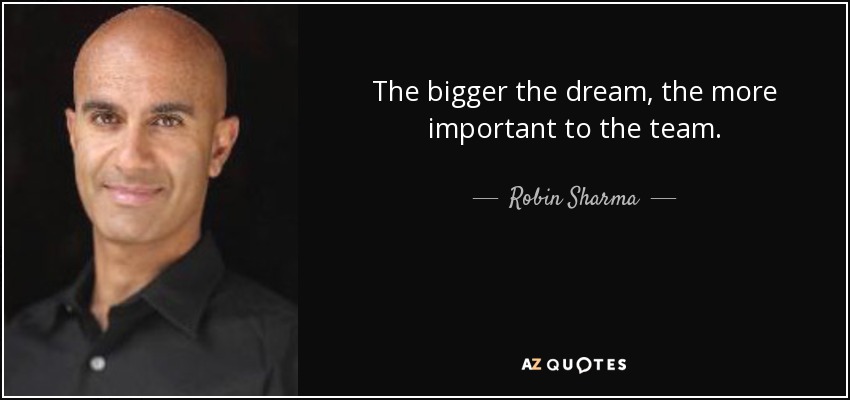Spending too much on recruitment, payroll or global HR?
We help you find the Best Providers at the lowest cost.
Key Takeaways
- Startups face three unique hiring challenges that most larger organisations don’t: balancing recruitment with growth, the risk of a poor hire and managing limited resources.
- Startups can minimise recruiting costs, save time and ensure compliance by using Recruitment Process Outsourcing (RPO).
- Startups who fail to adapt to the new world of remote work will continue struggling to hire new talent.
- This article is for startups who want to learn actionable tips to help them recruit and hire A+ talent.
It was Robin Sharma who said, “The bigger the dream, the more important to the team.”
Indeed, for startups, getting the right people onboard is everything. Who you hire in the early stages can make or break your business. Jim Collins, author of Good to Great said, “Great vision without great people is irrelevant.”
To be successful, startups need top talent who can step into a role and be that instant spark for growth. Although, many startups struggle to find, hire and retain top talent.
In this startup hiring guide, we will help you overcome the most common challenges in recruiting for startups so you can build an A+ team that will take your business to the next level. Here we go.
Why is Hiring a Challenge for Startups?
Startups are the major source of job creation. As the graph below demonstrates, they provide a significantly higher proportion of new jobs in the US than older and more established firms.
But this doesn’t mean that it is easy for startups to fill those roles. So why exactly is the hiring process for startups so challenging?
In the hiring process, startups face three major hurdles that most larger organisations don’t have to overcome:
1. Balancing recruitment with growth
In a startup environment, the leadership team finds themselves wearing many hats. They are often focused on finding funding, growing their product and raising their social profile, to name a few tasks.
Therefore, recruiting becomes an extra hassle that takes up capacity they probably don’t have. With a small team, creating a job listing, screening candidates and conducting interviews takes a lot of focus away from the company’s growth.
2. The risk of a poor hire
Sam Altman, the President of YCombinator said, “Mediocre people at a big company cause some problems, but they don’t usually kill the company. A single mediocre hire in the first five will kill a startup.”
Indeed, in the early stages, getting the right hire can truly be a make or break. According to the U.S. Department of Labour, a bad hire costs a business at least 30 percent of that employee’s first-year earnings.
So, say you have a $80K salary position that goes south, that will be a $24,000 mistake. As a small business, a five-figure expense like that isn’t something you can just brush off.
3. Managing limited resources
According to Glassdoor, the average company spends $4,000 to hire a new employee, and it takes 24 days to fill that position. Although, these are often time and money resources that a startup simply doesn’t have.
Similarly, in the absence of a dedicated in-house recruiter, startups may lack the knowledge of how to design and execute a successful hiring process to recruit top talent.
So, how can startups overcome these 3 hiring struggles and build a great team despite limitations? Here are 4 startup hiring tips.
Startup Hiring Tip 1: Outsource
The number one solution for startups to overcome a lack of resources and keep their focus towards growth is to outsource their hiring process. This can be done through Recruitment Process Outsourcing (RPO).
The benefits of Recruitment Process Outsourcing (RPO)
An RPO is a third party organization businesses can hire to outsource the recruitment process. The arrangement is quite simple — the RPO becomes an external arm of your company and provides talent acquisition services based on your needs.
An RPO can come in different forms, from international recruitment agencies to Professional Employer Organisations (PEOs), that can provide more extensive outsourced HR solutions.
The core benefits of using an RPO include:
- You focus on what you do best: The primary reason to use an RPO is to take the recruiting responsibilities off your plate. As a busy startup founder, you have better things to focus on than filling a position for 24 days. By partnering with an RPO, you can focus on your company’s growth while they focus their expertise towards helping you.
- Improved recruitment processes: RPOs don’t simply help you fill vacant positions. Instead, they can also help you to improve your entire recruitment process, from raising employer brand awareness to identifying untapped talent pools.
- Ensured compliance: When you work with an RPO, you’re also getting a risk management benefit. Because these people are recruiting specialists, they know the best practices, how to hire internationally and how to avoid compliance issues.
- Reduced recruiting costs: RPOs are only helping you when there is a hiring need. Therefore, this saves you a significant amount of money compared to hiring a full time employee. Equally, an RPOs service can be quickly scaled up or down depending on what stage of growth your startup is at.
Why use a PEO for recruitment outsourcing?
A Professional Employer Organisation (PEO) is an RPO but with more extensive outsourced HR benefits. In a PEO arrangement, the client company and the PEO enter into a co-employment relationship.
This means the PEO becomes the employer of record — they take control of the HR responsibilities associated with your employees. They will process your employees wages, benefits, withholdings, and taxes under their federal employer identification number.
However, you retain complete control and oversight of your employees in relation to their employment duties. Effectively, the client company gives up control of their employees’ administration responsibilities in exchange for more time and less stress.
This can be a beneficial arrangement for startups as it can help with risk management, international hiring, lowering your HR costs, offering competitive benefits and facilitating company growth, to name a few.
Learn more at our complete PEO guide: A Guide to the PEO Co-Employment Relationship and its Benefits.
Startup Hiring Tip 2: Utilize Tools and Resources
For time strapped startups, utilizing recruitment tools and resources is an absolute must. When you let it, technology can streamline your entire recruiting process.
Specifically, recruiting tools will help you write better job descriptions, post more job listings, source quality candidates, manage resumes and conduct interviews.
To save your startup time and money, think about using these 4 recruiting tools and resources:
Applicant tracking systems
An applicant tracking system (ATS) should be the centrepiece of any recruiting toolkit. Essentially, an ATS is an all-in-one human resource software that automates the hiring process.
It will help you by:
- Posting your job listing to multiple job boards with one click, so you can minimise admin time and increase your reach.
- Storing candidate information such as resumes, cover letters and other recruitment data so that your HR team can easily access and organise them.
- Tracking candidates and their application status throughout the whole hiring process. This means multiple team members can log in and know which candidates have been processed.
- Sorting through candidates and recommending the best fit for a position based on the parameters set by HR.
- Automating time-consuming tasks such as manually screening applicants, reading resumes, scheduling interviews, and sending emails to candidates.
Job boards and marketplaces
The traditional job boards and marketplaces aren’t going anywhere. To date, LinkedIn has 850 million users. While a job board like Indeed gets nearly 600 million monthly visitors and has 100 million resumes.
So, what are the platforms a startup should be leveraging and what are the pros and cons?
LinkedIn is one of the leading platforms for sourcing top talent as it has a three-way nature of being a social media network, headhunting tool and job board marketplace. This means it can be utilised for sourcing passive candidates, while you can also post a public job listing, and will typically get higher quality applicants than on other job boards.
Upwork and similar freelance marketplaces bring two primary benefits of reduced costs and faster hiring. When you use these platforms, you can easily recognise top talent through higher reported earnings, established portfolios and quality client feedback. FreshBooks says two-thirds of all business owners have considered outsourcing work to a third party or a freelancer, so if you think it would work for your startup, they are worth a look.
Indeed and other traditional job boards continue to stand the test of time. They bring an abundance of talent and are a cheap option. Although, they often attract unqualified candidates and will leave you flooded with resumes that don’t have the required experience. Only a handful of applicants will be a good fit to move onto the interviewing stage.
Niche sites are growing in the startup hiring environment. Sites likeWe Work Remotely, Dribbble and AngelList give startup recruiters access to a pool of talent that are actively or passively looking for a role in the startup world.
Startup Hiring Tip 3: Optimize Compensation Packages
Determining how to pay employees in a startup isn’t a simple task. When big tech giants like Facebook, Amazon and Netflix are such comprehensive compensation packages, how can you compete for top talent while staying within your means?
The key is knowing what your potential employees want. A recent survey from sifted says startup candidates have changed their priorities when looking for a job:
“74% of respondents told us that they put more of an emphasis on company mission when looking for a job than they did 12 months ago.”
According to their findings, only 23% of respondents said equity or shares were important to them. Instead, more value is put on the company mission, flexible working arrangements and salary.
Therefore, you should be looking at giving employees a more hands on approach in their role, greater autonomy and perks that show they are valued in the company, such as quarterly personal and professional development budgets.
The opportunities to attract top talent are available to all. However, you simply have to understand what they’re looking for and how you can show it to them.
Startup Hiring Tip 4: Be Flexible
According to CareerBuilder, jobs posted with hybrid or remote opportunities are currently attracting seven times more applicants than in-person roles. And this trend is not set to change.
The events that happened in 2020 have shown us we can not only remain productive and efficient without the traditional office 9-to-5, but we can also achieve a better work life balance.
As such, few are willing to return to the offices and spend all that extra time commuting. CareerBuilder says 79 percent of employees feel a remote work option is a necessity in today’s workforce.
In fact, many candidates would even choose flexibility over higher compensation.
For startups, this means to attract top talent you must be flexible. Think about how you can integrate remote work into your processes and learn the best remote working practices.
Startups that fail to adapt to this new world of work will continue struggling to hire new talent as they are no longer just competing for talent with local businesses, but also international enterprises too.
How to Hire For Startups Video: Gary Vee’s Take
How to Hire Employees for Startups — Our Take
Hiring employees for startups is a high stakes venture: the risk of a poor hire can be catastrophic. To ensure that you hire the right person, we recommend:
- Embrace outsourcing — it’s the most efficient and cost-effective way to run a business function outside your area of expertise.
- Use the right hiring sites and tools
- Optimize your compensation package — it’s not just about dollars
- Allow flexible work options.
When you follow these steps, you set yourself up to hire the best possible team for your new venture.
For more specific hiring guides, check out:
- How to hire for small businesses
- How to hire international employees, and
- How to hire personal assistants.
FAQ
Hiring the right people for a startup is all about knowing what you want. It’s also about knowing what potential candidates want. Once you know the two, you can start designing the hiring process to match. Simple tips to help are outsourcing recruiting, utilising tools and resources, optimising compensation packages and offering flexible working arrangements.
Startups have a number of ways they can recruit people: 1) Jobs boards and marketplaces. 2) Through their network. 3) Recruitment Process Outsourcing with recruitment agencies or PEOs.




